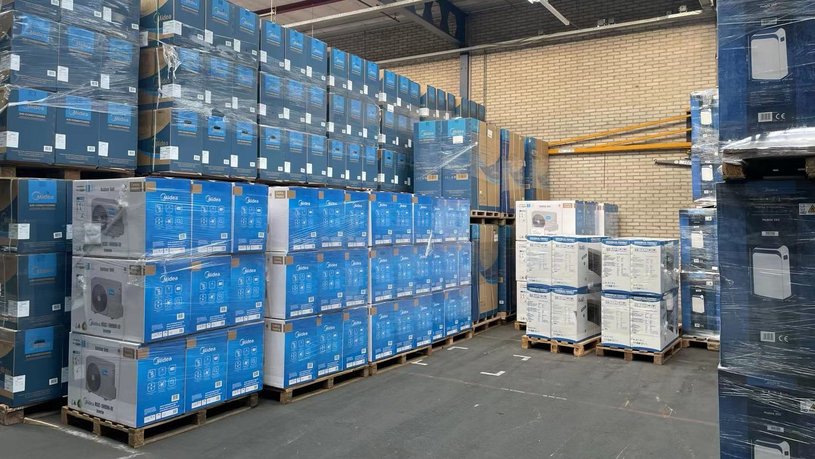Increasing confidence among dealers and installers as well as high environmental awareness among consumers mean favourable conditions for the natural refrigerant propane in split air conditioning systems. Philipp Munzinger and Julia Schabel from GIZ Proklima provide insights into the latest European market developments.
Split air conditioners with a capacity of up to 5 kW are responsible for the largest share of greenhouse gas emissions (GHG) from the refrigeration and air conditioning sector. While around 80 million units were sold globally in 2018, this figure is expected to rise to around 115 million units in 2026.[1] Even the COVID-19 pandemic hasn’t affected the market growth of the most widely used type of air conditioner in the world. In large parts of the global market, split air conditioners are characterised by only moderate energy efficiency and are powered by coal-fired electricity. Moreover, they almost exclusively use HCFC (R22) or HFC (R410A and R32) refrigerants, which are highly damaging to the climate. Without a timely shift towards more efficient systems, low-carbon power supply and climate-friendly refrigerants, the split air conditioning segment will continue to have a significant climate impact.
Split-type ACs have long since been sold and installed in huge quantities not only in countries with constantly high ambient temperatures in arid and tropical regions. In many European countries, too, split air conditioners dominate the market among direct-evaporation systems. In Germany alone, over 70% of the 157,000 room air conditioners sold were split ACs. In Europe, the HFC R410A is the refrigerant which is still used in most air conditioners.[2] However, R32 is well on its way to becoming the dominant refrigerant in the European sales and equipment inventory. Despite increasing regulation through the extension of the Montreal Protocol and the EU F-Gas Regulation agreed in Kigali in 2016, R32 is defended by many actors in the refrigerant and appliance industry as a medium to long-term intermediate in the HFC phase-down over the next two decades. However, due to their extremely high climate impact over the next 20 years (R410A has a 20 years global warming potential of 4,400; R32 of 2,530[3]), there is a particularly urgent need for climate-friendly alternatives to HFC substitutes.
Energy-efficient split air conditioners with the natural refrigerant propane (R290, GWP = 1) have been produced and sold in China and India since 2013. Despite good consumer response according to manufacturers, however, the green air conditioners have not yet made a national or international breakthrough. In an article by GIZ Proklima in the KKA issue 05/2020, the necessary preconditions and favourable factors for a broad market introduction were already examined in more detail.[4] In line with the conclusion of the article, the European Commission concluded in a study published in September 2020[5] that propane in split air conditioners up to 7 kW can be classified as a technically valid alternative to HFC-driven split air conditioners. A rapidly growing market share of R290 split air conditioners would be welcome in the context of the implementation of the EU F-Gas Regulation and its influence on policy making in other countries.

